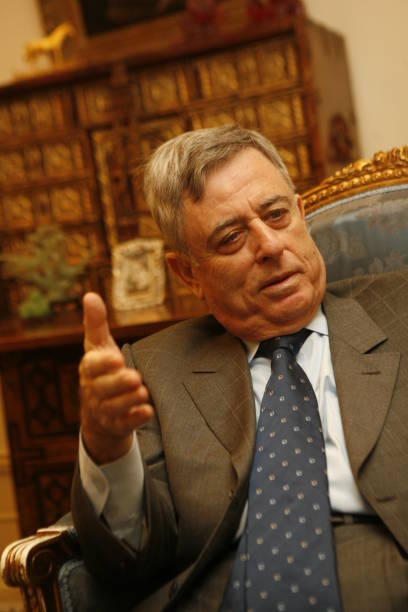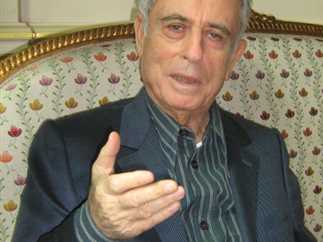Former Syrian Vice President Abdul-Halim Khaddam accused the United States and Western countries on Tuesday of being reluctant to confront the regime of President Bashar al-Assad. He considered that the latter currently relies on the cover of the positions of major countries despite the “brutal acts” he is committing against the Syrian people. Khaddam said in an interview with “Radio Sawa” that Bashar al-Assad’s regime “is over and will leave, but the cover he relies on now is the stance of some major countries that have taken vague positions,” as he expressed it.
Khaddam compared the Western countries’ stance, especially the United States, towards Syria and Egypt, pointing out that “when the revolution in Egypt against President Mubarak, who is a key ally of the United States and the West and committed to the approach aligned with America, took place, Washington demanded his departure after a few days. This is logical considering that the Egyptian people moved, and it is not logical to support the president when his people are not with him. However, in Syria, no decisive word has been issued saying to Bashar al-Assad that he should leave.” Khaddam continued, saying that “Bashar al-Assad is an ally of Iran and declares day and night that the United States is conspiring against him. He also arrests people under the title of foreign conspiracy. Nevertheless, after two months of bloodshed in the Syrian streets, no decisive word has been issued saying to Bashar al-Assad, ‘You have gone beyond the values of the United Nations, human rights, and all laws, and you should leave, and your legitimacy should fall.'”
Fall of the Regime
Khaddam affirmed that there will be no roadmap or political solution to the crisis in Syria, considering that “the only acceptable political solution is the fall of the regime and the establishment of structures for a democratic state.” Khaddam continued, saying, “A regime that uses tanks and artillery, enters cities, and kills citizens—how can anyone imagine that the people will accept to continue under its rule?” Regarding the existence of documents in the hands of the Syrian regime that it relies on to mitigate international pressure, Khaddam said, “The Syrian regime does not have real cards,” considering that Damascus “uses the Palestinian card, which does not belong to it.” He added that “the movements of Hamas and Islamic Jihad are fundamentally linked to Iran,” considering that there may be a change in positions after the Palestinian reconciliation brokered by Egypt.
As for Iraq, according to Khaddam, Assad’s role was to facilitate the training of elements to carry out actions against US forces in Iraq and against some gatherings there. But in the end, he cannot play a primary role in Iraq except by alliance with Iran because the region adjacent to Syria does not have Iraqi citizens with ties to Iran. This region belongs to a specific sect and is sensitive to the ruling regime in Syria, referring to the Kurds in northern Iraq. The former Syrian vice president stated that what is happening in Syria is “natural after more than 40 years of oppression, injustice, persecution, discrimination, and deprivation of rights,” confirming that “it is the right of the Syrians to aspire to build a democratic state after more than 40 years of a corrupt and sinful dictatorial regime,” as he described it. Khaddam expected the “continuation of the Syrian popular movement until the aspiration is achieved for Syria to transform from a state ruled by a dictator to a state ruled by the people through constitutional governance that establishes democracy and the exchange of power.”
Foreign Conspiracy Regarding the Syrian accusations that the protests are part of a foreign conspiracy against Damascus, Khaddam said, “There is indeed a conspiracy, but it is not external; rather, it is from the regime against the Syrian people and against their aspirations for freedom,” he said. He stated, “The only sectarian regime in the region now is the ruling regime in Syria, which has sent units of the army belonging to a specific sect to kill people and slaughter them, which is the worst expression of sectarianism.” He added that “the Syrian people were not sectarian at any time, and when they elected Hafez al-Assad for the first time, they knew he was Alawite, but they chose him because they expected him to fulfill his promises to them,” considering that “the issue for Syrians is not about the sectarianism of the head of the regime but rather about the sectarian behavior he practices.”
Khaddam said that there is “no political system capable of accommodating the current situation in Syria other than the democratic system,” emphasizing that “the Syrian people cannot accept being ruled by a minority in the country that exercises power systematically and sectarian.”




